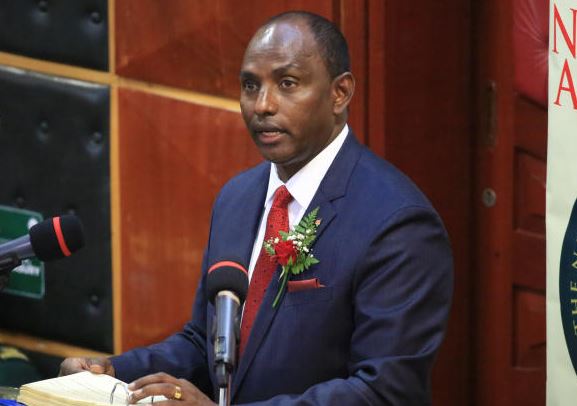×
The Standard e-Paper
Home To Bold Columnists

Treasury CS Ukur Yatani. [Elvis Ogina, Standard]
Parliament has taken the government to task over a rise in public debt and recurrent expenditure, setting the stage for a new push in cutbacks to State spending.